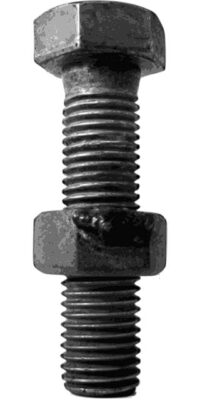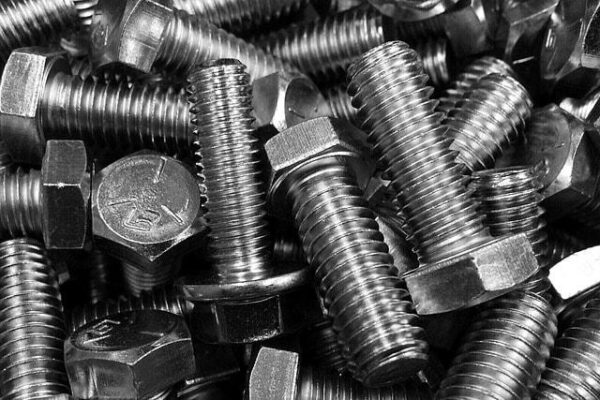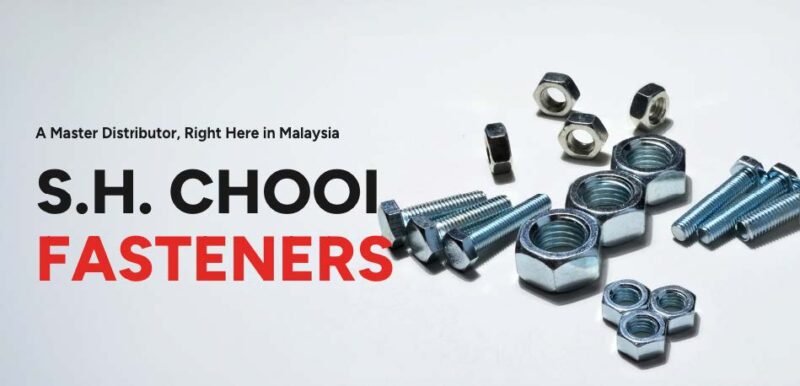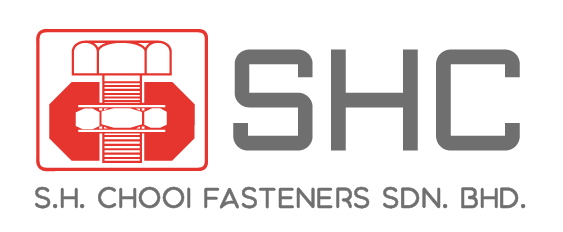Fasteners
How Fasteners Improve Quality and Control Costs
How Fasteners Improve Quality and Control Costs: Essential Benefits for Any Industry

Fasteners are essential in controlling costs in manufacturing, as many businesses demonstrate how fasteners improve quality and control costs. They ensure structural integrity, enhance durability, and reduce maintenance. This article explores how focusing on standardization, material choice, and precision in fasteners can help achieve these goals.
Key Takeaways
- High-quality fasteners are essential for quality control, ensuring structural integrity and reliability across various industries.
- Durability and material choice of fasteners significantly influence manufacturing efficiency, operational costs, and product lifespan.
- Standardization and integration of advanced technologies in fastening processes lead to improved cost efficiency and productivity.
- Custom products tailored to specific needs can further enhance quality control and cost efficiency.
Understanding Quality Control
Quality control is a cornerstone of quality management, encompassing the rigorous testing, inspection, and evaluation of products or services to ensure they meet predefined standards. This process requires a concerted effort from both management and employees to strive for perfection. Creating an environment that prioritizes quality involves training personnel, establishing benchmarks for product quality, and conducting thorough testing to identify any statistically significant variations.
In practice, quality control involves testing units to determine if they meet the specifications for the final product. This testing is crucial for identifying any need for corrective actions in the manufacturing process. By catching potential issues early, businesses can make necessary adjustments to maintain high standards and ensure that their products or services meet customer expectations and are safe for use.
Quality control is not just about meeting standards; it’s about exceeding them. It ensures that the final product is reliable, durable, and of the highest quality, which in turn enhances customer satisfaction and loyalty. In essence, quality control is an indispensable part of the manufacturing process that helps businesses deliver superior products while maintaining cost efficiency.
The Role of Fasteners in Quality Control
Maintaining stringent quality control requires regular inspections—including visual examinations and dimensional checks—to detect faults within these crucial elements. This is fundamental to any successful production process, and this includes the utilization of high-quality fasteners. These components are essential for preserving the structural integrity of products such as vehicles, by affixing vital parts securely together, thereby guaranteeing safety and reliability. For instance, in the automotive industry, an array of different types of fasteners like bolts, screws, and rivets are deployed to fulfill various critical functions that adhere to rigorous quality demands.
Innovations in fastener design feature locking mechanisms specifically engineered to counteract loosening due to vibrations. This advancement enhances dependability while diminishing the likelihood of potential defects.
The insistence on detail-oriented scrutiny extends across all aspects involved with manufacturing exceptional components—fasteners being a prime example. By incorporating first-rate fasteners into their manufacturing processes meticulously, producers can achieve greater oversight over end-product caliber whilst concurrently minimizing possible hazards associated with inferior materials or construction lapses ensuring they satisfy exacting specifications demanded by contemporary industries.

Ensuring Durability and Reliability
The resilience and dependability of manufacturing processes greatly hinge on the selection of materials for fasteners. Utilizing high-quality fasteners, such as those crafted from steel, bolsters the efficiency of manufacturing by ensuring steady and dependable functionality. For example, Wyandotte Industries manufactures carbon-steel castle nuts which are essential in securing vehicle axles and thus play a key role in elevating performance and reliability within the automotive sector.
Incorporating fasteners that are substandard or do not fit correctly can cause an uptick in maintenance requirements and operational expenditures due to alignment issues along with product breakdowns. Such defects impede ongoing production activities while also putting at stake both safety aspects and the structural integrity of the end product. A project manager plays a crucial role in overseeing these aspects to ensure compliance with quality standards.
Fasteners tailored to specific needs offer superior structural strength and operating performance when compared to generic counterparts, especially under circumstances where ordinary fasteners might prove inadequate. To avoid problems related to corrosion affecting longevity, it’s imperative that these custom-made components undergo proper installation practices complemented by regular maintenance routines.
Firms that prioritize utilizing premium quality fasteners while rigorously adhering to established quality criteria stand a better chance at minimizing hazards associated with their usage. This conscientious approach promotes improved productive efficacy alongside enhanced chances for higher profitability margins within various industries.
Precision Manufacturing and Cost Efficiency
Maintaining precision in manufacturing is critical for managing expenses and enhancing operational efficiency. Utilizing fasteners that conform to industry-accepted tolerance levels promotes production efficacy and curtails excess material use. By adopting a tolerance range of.499” to.501” instead of an exact.500” diameter, manufacturers illustrate how precision can be optimized with cost savings in mind.
Employing high-quality fasteners can lead to reduced actual costs across the entire production cycle by decreasing waste and limiting the necessity for corrective work. This advantage becomes more pronounced within industries that implement Six Sigma practices aimed at defect reduction and process optimization. Adherence to rigorous quality control measures enables manufacturers significant cost reductions while boosting their profit margins.
The adoption of robotic technologies into fastener application procedures greatly elevates output rates and refines manufacturing operations. Automating these processes not only heightens overall effectiveness, but also guarantees uniform product quality, which plays a pivotal role in reinforcing cost management initiatives as well as augmenting productivity throughout the manufacturing sector.
Standardization and Interchangeability
Standardization and interchangeability in the production of fasteners are essential for upholding quality control and bolstering operational efficiency. Ensuring that components such as bolts and nuts can be used together seamlessly, regardless of their manufacturer, is made possible by adhering to standards set forth by organizations like ASTM and SME. These bodies participate in establishing guidelines for strength, size, and dimensions.
The use of standardized fasteners guarantees uniformity in both quality and dimensionality across various producers’ products. This uniformity streamlines inventory management processes by diminishing the need to keep track of multiple types of fasteners—aided standardization fosters efficient operations through reducing the time required for installation or replacement tasks, which feeds into enhancing overall productivity levels.
For instance, Faurecia, a prominent producer specializing in vehicle interiors, has realized substantial savings after implementing a strategy focused on using standardized fasteners throughout its global facilities. Such an approach serves not just to satisfy stringent quality requirements, but also plays a significant role in driving down costs while simultaneously boosting organizational efficacy.
Corrosion Resistance and Environmental Factors
The composition of a fastener plays an essential role in its capacity to withstand corrosion, which is vital for maintaining both durability and dependability. Fasteners made from stainless steel offer superior resistance to corrosion than those crafted from carbon steel, rendering them perfect for use in severe conditions. In contrast, aluminum fasteners are sought after not only for their resistance to corrosion, but also due to their lightness, making them favorable choices in situations where weight considerations are paramount.
To augment the service life and consistency of performance of fasteners when used under adverse conditions, protective coatings such as zinc plating or galvanizing can be applied. The longevity of a fastener is contingent on the corrosive agents present within different environments. These could range from humidity to salinity levels affecting how durable they remain over time. For example, agricultural settings may facilitate a longer lifespan for fasteners compared with coastal regions that expose them more heavily to factors like smog and saltwater erosion.
Proper consideration of environmental influences along with choosing suitable materials and protective measures greatly improves the durability of fasteners. This strategic selection ensures ongoing dependable performance while simultaneously minimizing any maintenance expenses required over time.

Custom Fasteners for Specialized Applications
Tailor-made fasteners are designed to meet the unique requirements of various industries, thereby boosting their efficiency and functionality. In particular, titanium fasteners stand out due to their superior strength-to-weight ratio, making them highly valuable in aerospace applications where it’s critical to minimize weight while maintaining structural integrity. These premium quality fasteners satisfy the rigorous standards demanded by the aerospace sector. Typically, quotes for custom fasteners are provided within one to two business days, although various factors can influence these lead times.
Utilizing custom-designed fasteners can obviate the necessity for extra tools during assembly, simplifying the process and increasing productivity. Customized automated solutions tailored for specific industrial applications can lead to optimized resource usage and improve overall operational effectiveness.
By investing in bespoke products, companies can exert greater control over both quality and performance metrics, ensuring they fulfill their distinct application necessities without any sacrifices.

Design Support and Expertise
Design support and expertise are pivotal in the creation of high-quality fasteners. Engineers with diverse experience can offer fresh perspectives and identify potential pitfalls in existing designs, making their input invaluable during the design stage of production. A fastener manufacturer with robust design knowledge can help customers save money, reduce lead times, and improve overall efficiency.
Design expertise is particularly crucial when developing customized solutions. By understanding the specific needs and challenges of a project, engineers can create fasteners that minimize risk and meet stringent quality requirements. This tailored approach ensures that the final product not only meets but exceeds customer expectations.
Providing design support and expertise allows fastener manufacturers to deliver products that are both innovative and reliable. It ensures that every fastener is crafted to the highest standards, contributing to the overall quality and performance of the final product. In a competitive market, this level of precision and attention to detail can make a significant difference, helping businesses achieve their quality and cost control goals.
Impact on Overall Production Costs
Fasteners play a pivotal role in influencing the overall costs of production. Due to their large-scale manufacturing, standardized fasteners are more cost-efficient than custom products, leading to considerable savings when accounting for the real expenses within industries such as automotive and electronics.
High-quality fasteners contribute to reducing future risks and enhancing performance, which ultimately leads to lower production costs. By adhering to stringent quality standards for fasteners, manufacturers can prevent expensive defects and unnecessary rework, aiding in enhanced control over costs.
Incorporating considerations about fastener selection into the project scope is crucial for staying within budgeted costs and ensuring that businesses realize profits from their final products. Prioritizing both quality and cost-efficiency of these components enables companies across various sectors to deliver superior products while exercising rigorous controls on expenditures.
Integration with Advanced Technologies
Incorporating advanced technologies with fasteners is revolutionizing the manufacturing landscape by significantly boosting process efficiency and product quality. The use of automation within assembly lines facilitates faster, more accurate fastening methods, which enhance the final product’s integrity. As an instance, a principal supplier in the automotive industry has managed to slash assembly durations and realize considerable savings in costs through employing automated machinery for drilling and pinning parts.
Conducting regular evaluations of how fasteners are implemented enables producers to stay abreast of evolving needs while preserving streamlined operations on their assembly floors. By embracing cutting-edge technological solutions, manufacturers can achieve marked reductions in expenses alongside advancements in quality—thereby elevating their production competencies.
The strategic integration of state-of-the-art technology with fastener systems is crucial for enhancing operational productivity and achieving noteworthy cost efficiencies paired with elevated standards of quality. This approach represents a pivotal aspect that contemporary manufacturing teams must concentrate on.
Choosing the Right Fastener Supplier
It is imperative for businesses to select a fastener supplier that can guarantee both quality and dependability. A supplier like S.H. Chooi Fasteners, with its dedicated engineering teams, ensures their products adhere to the most stringent of standards in quality. They serve an array of clientele from small and medium-sized enterprises (SMEs) to Fortune 500 companies across multiple industries, demonstrating their extensive knowledge and adaptability.
The commitment of S.H. Chooi Fasteners towards maintaining high-quality standards is evident through their ISO 9001:2015 and ISO/TS 16949 certifications. With a solid track record spanning over four decades in the fastener industry, they have earned acclaim for supplying top-notch fasteners capable of fulfilling the demanding requirements set by various clients.
Businesses should weigh considerations such as certification status, years of experience in the field, and capability to cater specifically to unique industrial demands when selecting a supplier for high-quality fasteners. Opting for a trustworthy provider is crucial as it helps ensure that businesses obtain premium fasteners which are pivotal for successful project completion.
Case Studies: Real-World Examples
Real-world scenarios demonstrate the crucial impact of fasteners on both elevating product functionality and maintaining cost-effectiveness in production. For instance, Blue Ocean Gear’s advanced smart buoy is constructed using titanium screws to withstand saltwater corrosion, ensuring a watertight closure that boosts longevity under tough oceanic conditions. This strategic selection not only enhances dependability but also slashes maintenance expenses while prolonging the operational life of their products.
The strategy employed by Blue Ocean Gear exemplifies how companies can amplify product excellence and manage expenditure through informed choices regarding fastener selection. The importance of such components is evident from this example, which spotlights their influence on augmenting performance standards and reigning in manufacturing costs within the marine sector.
Such case studies offer businesses invaluable perspectives on the advantages gained when selecting appropriate fasteners for particular uses, thus fostering improved functioning and more effective cost management.

Summary
To encapsulate the central themes we’ve discussed, the integration of fasteners is essential for upholding quality control and guaranteeing both durability and exactness within manufacturing practices. When businesses invest in superior-quality fasteners, they can considerably slash production expenses while simultaneously boosting operational efficiency and elevating the standard of their products.
The significance of uniformity standards, resistance to corrosion, and tailored solutions are exceptionally critical elements. Selecting an appropriate supplier for these crucial components and employing cutting-edge technological advancements plays a significant role in augmenting manufacturing processes’ success.
In summation, it’s evident that despite their diminutive size, fasteners play a vital role in propelling industrial prowess forward. By harnessing top-notch quality fasteners effectively within your operations, witness your enterprise achieve unprecedented levels of excellence in both quality management as well as process proficiency.
Frequently Asked Questions
What kind of clients does S.H. Chooi Fasteners cater to?
Serving a wide range of clients from SMEs to Fortune 500 companies worldwide, S.H. Chooi Fasteners is adept at fulfilling the requirements of multiple industries and business sizes with their fastener solutions.
What certifications has S.H. Chooi Fasteners been awarded?
S.H. Chooi Fasteners has been awarded ISO 9001:2015 and ISO/TS 16949 certifications, demonstrating their commitment to quality management and automotive standards.
What industries does S.H. Chooi Fasteners serve?
S.H. Chooi Fasteners serves the electronics, OEM, transportation, MRO, medical, and energy and utilities industries. Their diverse service sectors demonstrate their versatility and commitment to various markets.
What is the importance of fastener standards?
Standards for fasteners are essential because they ensure that components like bolts and nuts, regardless of their origin, work together without issues.
Such consistency increases dependability and safety across a range of uses.
How does location affect the lifespan of fasteners?
The longevity of fasteners is greatly influenced by their location, with those situated in rural settings lasting longer than their counterparts in coastal regions due to the latter being subjected to more severe elements such as saltwater corrosion.
Consequently, it’s crucial to take into account the environmental conditions prevalent in particular areas when choosing fasteners for use.

